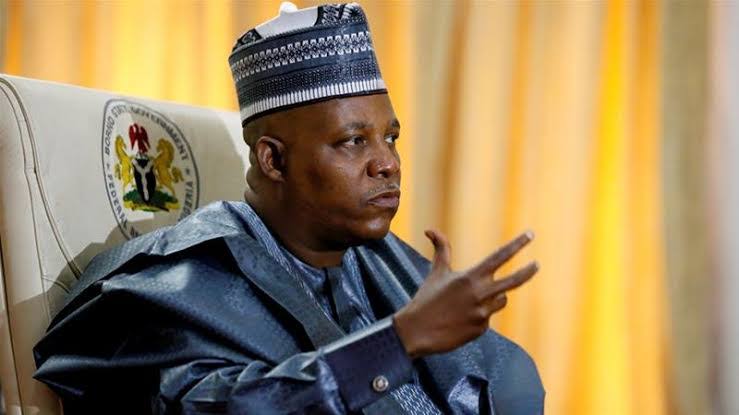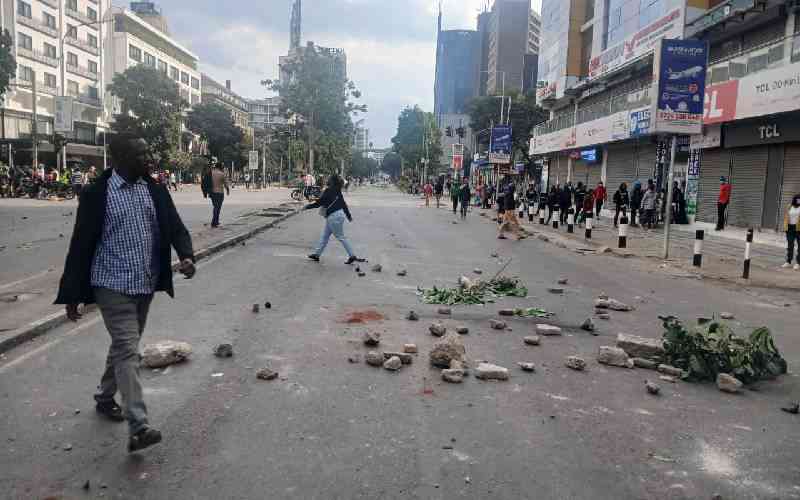
In less than a month, the city of Seville, Spain, will swap flamenco for finance as it hosts what might be the most consequential — and most anticipated — global development conference in recent years: the Fourth International Conference on Financing for Development, or FfD4.
This once-in-a-decade gathering is where countries hash out . It’s where norms are set and priorities are inked.
The world has changed dramatically since the last FfD in Addis Ababa, Ethiopia, in 2015. Then, the U.N. Sustainable Development Goals had just been launched, and the talk of the town was unlocking billions of dollars from private finance — which became known as . Now, SDG momentum is flagging, public finance is dropping, and the U.S. is expected to either hinder progress or back out entirely.
on long-term financing and investment, Li Jinhua, the secretary-general of FfD4, writes in an opinion piece for Devex, noting that FfD4 “presents a historic opportunity to renew the global financing framework for sustainable development.”
for the conference — and are skeptical of it surpassing the last one. “I think we see 2015 more as a high point in global cooperation, rather than as a stepping stone to greater heights,” Masood Ahmed, president emeritus of the Center for Global Development, tells me.
This year’s conference comes with . Here’s what’s on the table:
• : With over half of low-income countries in distress, debt restructuring will dominate the agenda.
• With donor cuts and shifting alliances, new coalitions for aid could emerge.
• : Protectionism and tariffs could shape new debates on fairer trade for development.
• : Low- and middle-income countries are pushing hard for a fairer global tax system — and for a new United Nations Framework Convention on International Tax Cooperation to oversee it.
• : Expect calls for low- and middle-income countries to broaden their revenue base, perhaps through keeping more of the critical minerals supply chain home.
• : Blended finance and green bonds will remain in the spotlight — but critics warn against relying too much on private capital.
The outcomes won’t be legally binding, but the influence will ripple across institutions, capital flows, and the daily realities for development practitioners around the globe.
I’ll be on the ground and would love to hear from you. Drop me a line at [email protected].
: What is Financing for Development 4 and why is it a big deal? (Pro)
In Seville, we can deliver a game changer for development finance
+ Looking for a deeper dive into the major issues facing global development with unrivaled analysis of the funding landscape, timely roundtables and exclusive briefings with sector leaders and policymakers, as well as tailored and insightful career resources and insider tidbits? Get these and more when you . We offer a 15-day free trial.
Debt is expected to be the flashpoint issue in Seville. Today, many of the world’s poorest countries have . The Group of 20 major economies’ Common Framework for Debt Treatments has helped just a handful of countries, and is increasingly criticized for delays, power imbalances, and a lack of trust.
Very few cases have successfully moved through the Common Framework. “Even though two-thirds of African countries, as well as low-income countries, are spending more on debt than on social services, education, and health combined, they continue to make payments because they don’t feel the framework will actually help them to quickly get out of the crisis,” Eric LeCompte, executive director of Jubilee USA Network, told me during a Devex Pro event last week.
Low- and middle-income income countries in Seville. The African Union held a first-of-its kind meeting last month demanding debt relief and equal representation on the debt framework, Devex contributor Anthony Langat reports.
Avinash Persaud, architect of the Bridgetown Initiative, which calls for reforms of the global financial architecture, is not optimistic. he told me during the Pro event. “I think it’s been a very difficult process and with the nature of geopolitics today, I don’t see a path forward that is helpful.”
: Calls for overhaul of global debt architecture intensify ahead of FfD4 (Pro)
African nations demand debt relief, increased aid, and financial reform
: US tariffs threaten to push debt-distressed nations closer to the brink
+ Devex Pro is hosting a virtual event series as FfD4 approaches. Here’s what’s on this week:
Ahmed Saeed, an influential philanthropy founder and former adviser to U.S. Treasury secretaries will speak on what it will take to mobilize climate finance at the speed and scale the crisis demands. Climate finance faces its most critical test yet: Despite reaching the $100 billion target in 2022 — two years late — governments worldwide are now slashing budgets just when climate action is needed most. Register for the event here.
Also, if you’re planning to be in Seville, be sure to register to , where we’ll be hosting exclusive interviews and panels with development leaders at a Spanish villa between June 29 and July 1. Sign up here.
A draft U.S. budget passed by the House of Representatives sent by noncitizens — a policy that could destabilize one of the most reliable and equitable financial flows to low- and middle-income countries.
These transfers, or money sent back home from abroad, — including $85.8 billion just from the U.S. — while official development assistance totaled $223.3 billion that same year. The proposal would force remittance providers to verify citizenship before transfers, creating a bureaucratic headache and pushing senders toward informal — and riskier — methods like carrying cash or using cryptocurrency.
says Marcela Escobari, senior fellow at the Brookings Institution. “Costs will increase for banks and providers as they check the migratory status of senders” — and for governments to enforce it.
: What a 3.5% tax on remittances could do to the developing world
Remittances far outstrip foreign aid. But can they replace it?
As Mission 300 — a joint African Development Bank and World Bank initiative to connect 300 million more people in Africa to electricity by 2030 — gains traction, AfDB’s Kevin Kariuki says nuclear energy won’t be part of the mix.
, because I know it's not practicable,” the bank’s vice president for power, energy, climate, and green growth told my colleague Ayenat Mersie on the sidelines of the AfDB annual meetings in Abidjan, Côte d’Ivoire, at the end of last month.
Why? High costs, outdated technology, and power grids too small to absorb nuclear energy — even if AfDB's policy didn’t already prohibit it. Instead, focused on least-cost, optimal mixes of solar, hydro, gas, wind, and geothermal. Twelve countries have revealed their compacts. Twenty more are expected by September’s United Nations General Assembly.
: Top AfDB official rules out nuclear in the mission to electrify Africa
• Today, the to lead the U.S. International Development Finance Corporation. Black was an unexpected pick, and his background at Goldman Sachs and investment fund Fortinbras Enterprises signals yet another shift toward deploying development finance as a tool of geopolitical strategy, not just poverty alleviation.
• Also today, Devex is . We expect to hear whether the bank will reconsider its ban on nuclear as it crafts an “all of the above” energy policy.
• Tomorrow, the Climate Investment Funds is kicking off its trust fund committee meetings. And a handful of countries that will receive support to help them decarbonize some of their industries.
• Next Monday, the midyear meetings on the United Nations Framework Convention on Climate Change, or UNFCCC, begin in Bonn, Germany. These meetings tend to get less attention, but this is where delegates set the tone for the climate world’s biggest annual meeting, COP30, happening in Brazil later this year. We’ll be on the ground in Bonn, so stay tuned.
African institutional investors are sitting on $1.1 trillion in capital that could transform the continent’s infrastructure. But regulatory gaps and risk aversion are slowing progress, according to the Africa Finance Corporation’s 2025 report. [Bloomberg]
The World Bank is set to resume funding to Uganda nearly two years after suspending support over the country’s anti-LGBT law — following new mitigation measures and approvals for projects in social protection, education, and refugee support. [Reuters]
The Asian Development Bank and Indonesia have reached a milestone in local currency loan conversions — a move aimed at reducing foreign exchange risks for development financing. [ADB]










